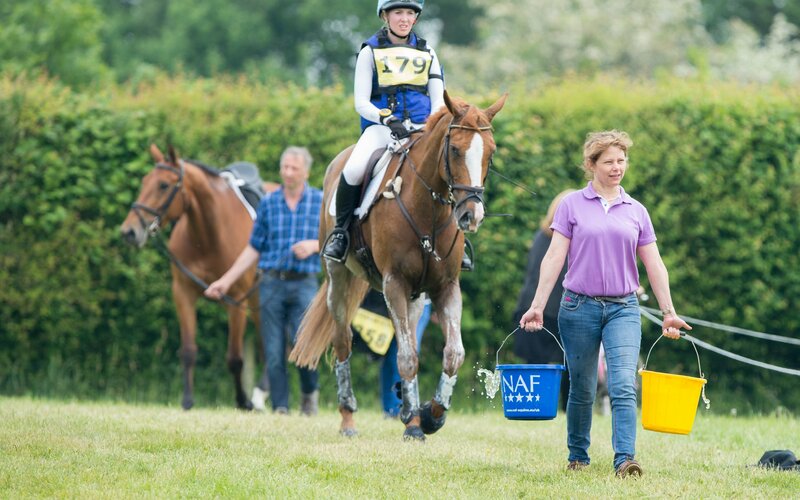
12 tips to keep your horse hydrated
Equine vet Katie Brickman shares her helpful hints to keep your horse hydrated this summer.
1. A horse’s access to water should never be restricted.
2. On the way to a competition, the horse should be offered water every two to three hours. Once at the competition, the horse should continuously be offered water and forage and given time to relax before competing.
3. It has been demonstrated in scientific studies that horses will not drink beyond their stomach capacity in the first few minutes following intense exercise, hence they should be encouraged to drink as soon as possible following exertion.
4. Horses can be very fussy about the water they drink. Bring familiar water from home or mix the water with something tasty such as apple juice or sugar beet.
5. Signs of dehydration in a horse include depression, lethargy, dullness, sunken eyes, cool extremities, decreased appetite, reduced urination and defecation, passing dark coloured urine, licking surfaces – including licking or eating soil – and abnormal drinking behaviour, such as drinking for extended periods, taking long draughts or gulping water.
6. A crude measurement of dehydration in the horse is the ‘skin tent test’. In a normal horse, if you pinch a piece of skin on the neck and pull it towards you it will spring back into place. In a dehydrated horse, the skin will slowly fall back into place with no elasticity, but be careful interpreting the results as the test can be inaccurate
7. Additional signs of dehydration that a vet will examine include increased heart and respiration rate, and pale and dry mucous membranes.
8. The main electrolytes lost through sweating are sodium, potassium and chloride. These are the key electrolytes the body needs to retain water, so in order to keep the horse hydrated they need these electrolytes as well as water. Ideally, electrolytes should be provided immediately after the horse has undergone a period of exertion.
9. An average 500kg horse will drink 30 to 50 litres of water a day. This amount can be dramatically increased if the horse is sweating as this uses up the water reserves in the body.
10. Grazing reduces the horse’s need to drink pure water as the water content of grass is high – encouraging your horse to graze at an event can help them to rehydrate.
11. Sodium chloride should be fed either from a salt block or by adding one tablespoon of salt daily to the feed.
12. Haylage has a higher water content than hay, so introducing this to a horse’s diet could help their water intake. Spray hay or haylage with water to increase the horse’s water intake.
Now your horse is looked after, find out how to look after yourself while out eventing in hot weather.
